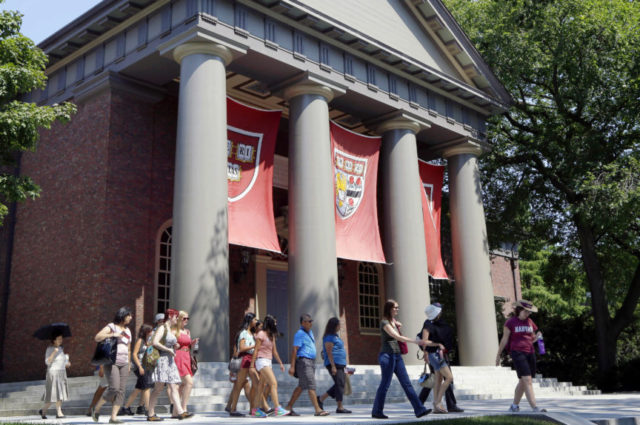One computer science professor at Harvard University is making it easier for his students to cheat. In his undergraduate courses, Professor David J. Malan employs a “regret clause” that says that he will not report cheating violations to the Harvard administration as long as the culprits admit to it.
According to a report by Campus Reform, Harvard University computer science professor David J. Malan is lightening the punishment for academic dishonesty.
Malan’s course contains a “regrets clause” while allows students to avoid the official university standard of punishment if they admit to cheating within 72 hours of the dishonest act. Instead, the student will receive a failing grade only on the assignment or exam in question.
“If you commit some act that is not reasonable but bring it to the attention of the course’s heads within 72 hours,” the policy reads, “the course may impose local sanctions that may include an unsatisfactory or failing grade for the work submitted, but the course will not refer the matter for further disciplinary action except in cases of repeated acts.”
In a research paper on cheating, Malan argued that students cheat because they are sleep-deprived and over-anxious. Malan claims that his “regret clause” was created so that students would feel more comfortable in self-reporting their own cheating violations. According to Malan, existing penalties for academic dishonesty are so strict that students go to great lengths to conceal their transgressions.
All too often were students’ acts the result of late-night panic, a combination of little sleep, much stress, and one or more deadlines looming. We hypothesized that at least some of those students might very well regret those acts the next morning after some sleep and reflection. But, at the time, there was no well-defined process via which they could take ownership of the situation, short of waiting to see if their act would be noticed by term’s end. To be fair, there was also no process preventing students from coming forward. But with the potential penalty so high (e.g., required withdrawal from the university), it’s not surprising that few, if any, ever did on their own.
Breitbart News reported this month that a Harvard University medical student is facing federal charges for stealing cancer research data and attempting to smuggle it out of the country.

COMMENTS
Please let us know if you're having issues with commenting.